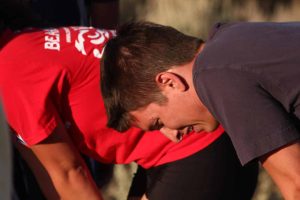How much physical activity do older adults aged 65 and over need to do to keep healthy?
To stay healthy or to improve health, older adults need to do two types of physical activity each week: aerobic and strength exercises.
The amount of physical activity you need to do each week depends on your age, older adults aged 65 or older, who are generally fit and have no health conditions that limit their mobility, should try to be active daily and should do:
· at least 150 minutes of moderate aerobic activity such as cycling or walking every week, and
· strength exercises on two or more days a week that work all the major muscles (legs, hips, back, abdomen, chest, shoulders and arms).
OR
· 75 minutes of vigorous aerobic activity such as running or a game of singles tennis every week, and
· strength exercises on two or more days a week that work all the major muscles (legs, hips, back, abdomen, chest, shoulders and arms).
OR
· a mix of moderate and vigorous aerobic activity every week. For example, two 30-minute runs, plus 30 minutes of fast walking, equates to 150 minutes of moderate aerobic activity, and
· strength exercises on two or more days a week that work all the major muscles (legs, hips, back, abdomen, chest, shoulders and arms).
A rule of thumb is that one minute of vigorous activity provides the same health benefits as two minutes of moderate activity.
You should also try to break up long periods of sitting with light activity, as sedentary behaviour is now considered an independent risk factor for ill health, no matter how much exercise you do.
Older adults at risk of falls, such as people with weak legs, poor balance and some medical conditions, should do exercises to improve balance and co-ordination on at least two days a week. Examples include yoga, tai chi and dancing.
To find out more visit NHS












